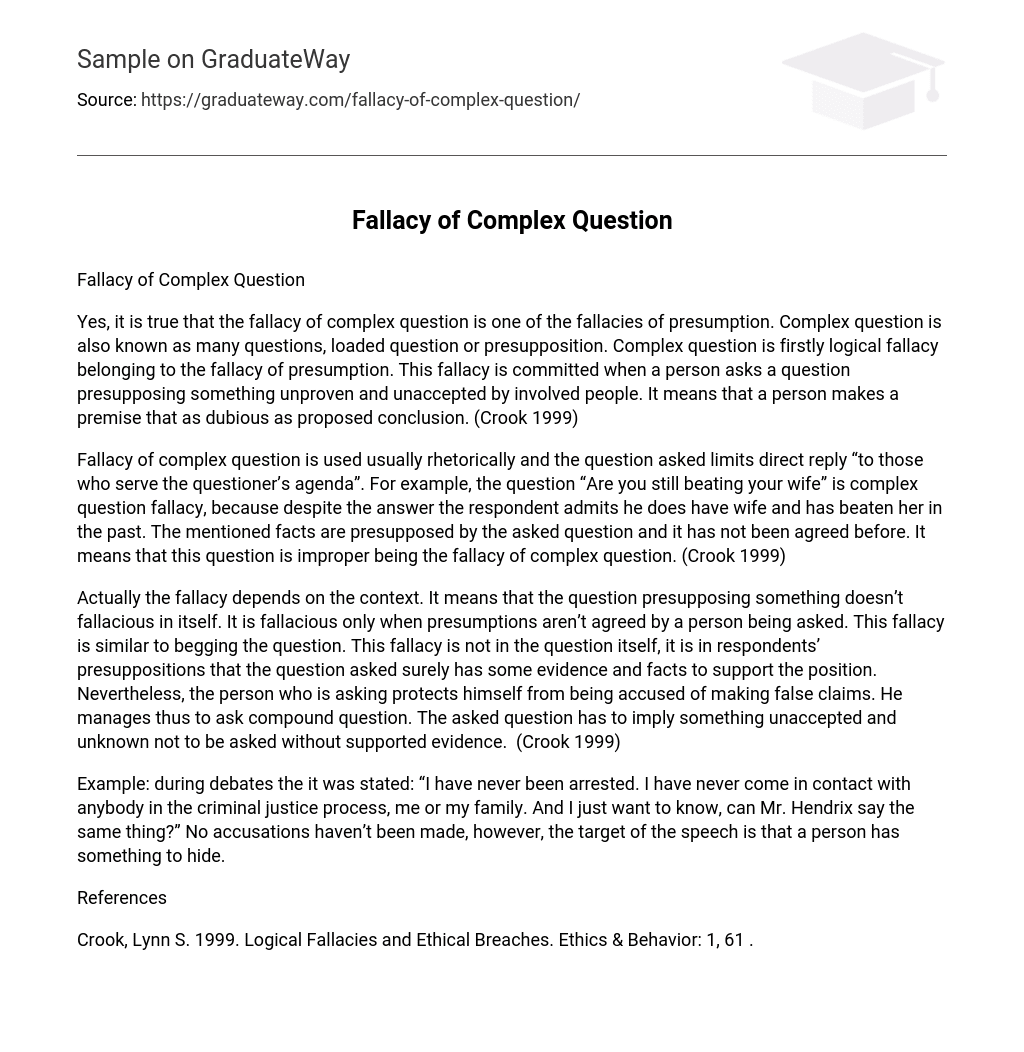Yes, it is true that the fallacy of complex question is one of the fallacies of presumption. Complex question is also known as many questions, loaded question or presupposition. Complex question is firstly logical fallacy belonging to the fallacy of presumption. This fallacy is committed when a person asks a question presupposing something unproven and unaccepted by involved people. It means that a person makes a premise that as dubious as proposed conclusion. (Crook 1999)
Fallacy of complex question is used usually rhetorically and the question asked limits direct reply “to those who serve the questioner’s agenda”. For example, the question “Are you still beating your wife” is complex question fallacy, because despite the answer the respondent admits he does have wife and has beaten her in the past. The mentioned facts are presupposed by the asked question and it has not been agreed before. It means that this question is improper being the fallacy of complex question. (Crook 1999)
Actually the fallacy depends on the context. It means that the question presupposing something doesn’t fallacious in itself. It is fallacious only when presumptions aren’t agreed by a person being asked. This fallacy is similar to begging the question. This fallacy is not in the question itself, it is in respondents’ presuppositions that the question asked surely has some evidence and facts to support the position. Nevertheless, the person who is asking protects himself from being accused of making false claims. He manages thus to ask compound question. The asked question has to imply something unaccepted and unknown not to be asked without supported evidence. (Crook 1999)
Example: during debates the it was stated: “I have never been arrested. I have never come in contact with anybody in the criminal justice process, me or my family. And I just want to know, can Mr. Hendrix say the same thing?” No accusations haven’t been made, however, the target of the speech is that a person has something to hide.
References
Crook, Lynn S. 1999. Logical Fallacies and Ethical Breaches. Ethics & Behavior: 1, 61 .





